Visiting the Sacred Valley
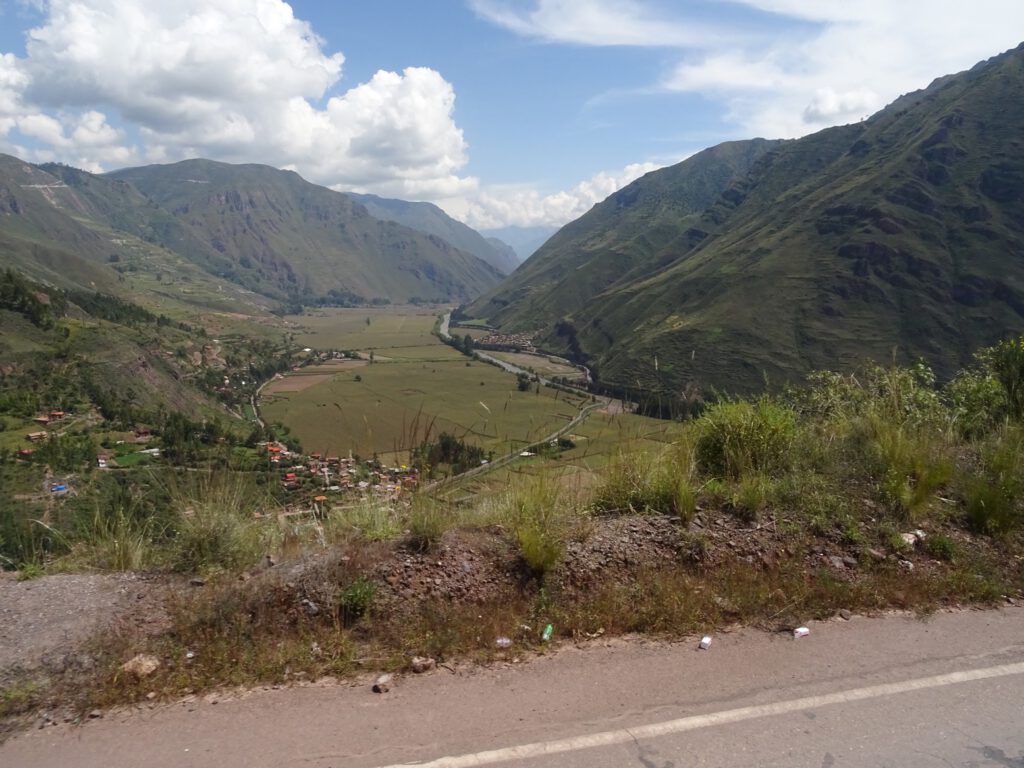
There is plenty to see around Cusco while making time to visit Macchu Picchu. One of the highlights for me was the ruins of Pisaq, another massive Inca city at the beginning of the Sacred Valle, with less buildings but much bigger extension than Macchu Picchu itself.
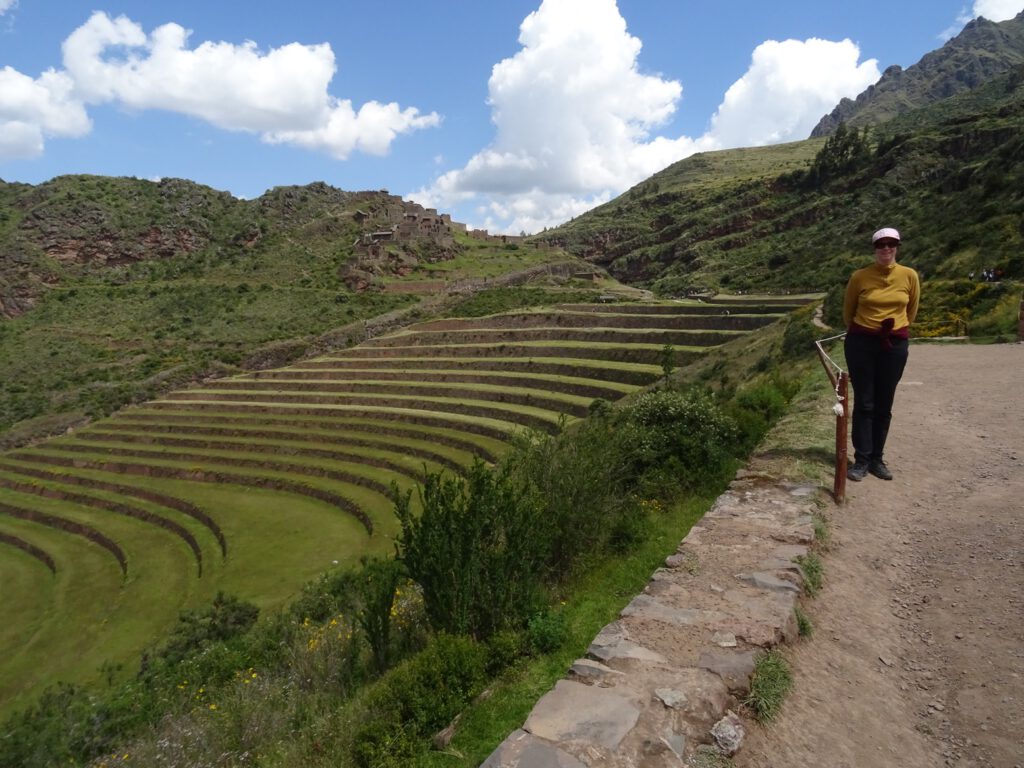
To get there is very easy, as there are colectivos leaving in the morning for about 10 soles, for a journey that takes about an hour. First the bus climbs out of Cusco in direction Tambomachay, but then continues until it changes to the next valley, and then there is a long downhill to Pisaq village.
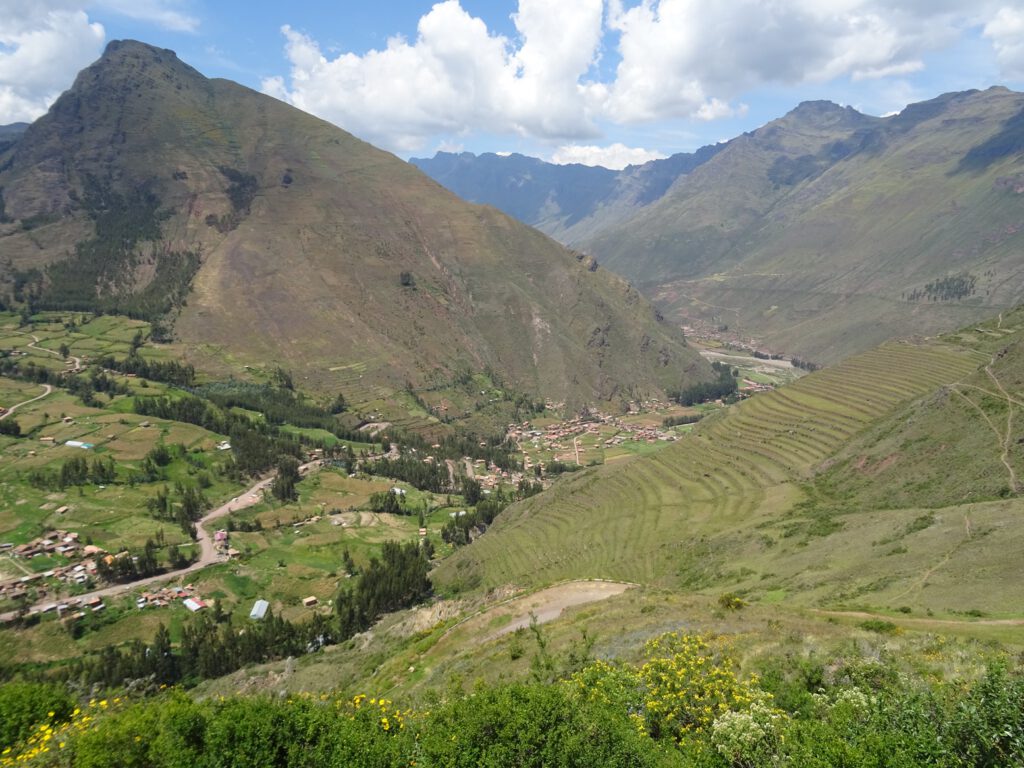
From there, the best is to take a taxi up to the ruins, very high up on the hills behind. We were lucky and could share the ride with a Polish couple, so it was cheaper than expected. Although most people just explore the main ruins and terraces next to the entrance, and then go back to their bus, our plan was to cross through and go down to the modern village passing across all major sites.
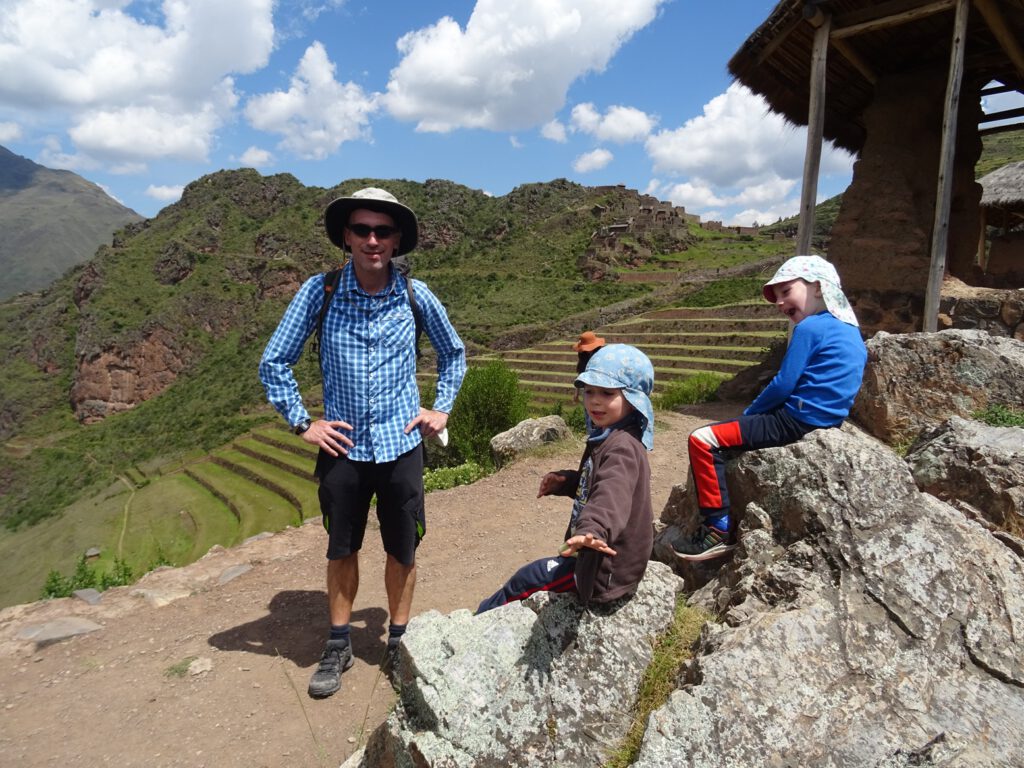
Our tourist card from Cusco is also valid here, and the first impression was great, as Pisaq has an amazing complex of terraces very high up in the mountains.
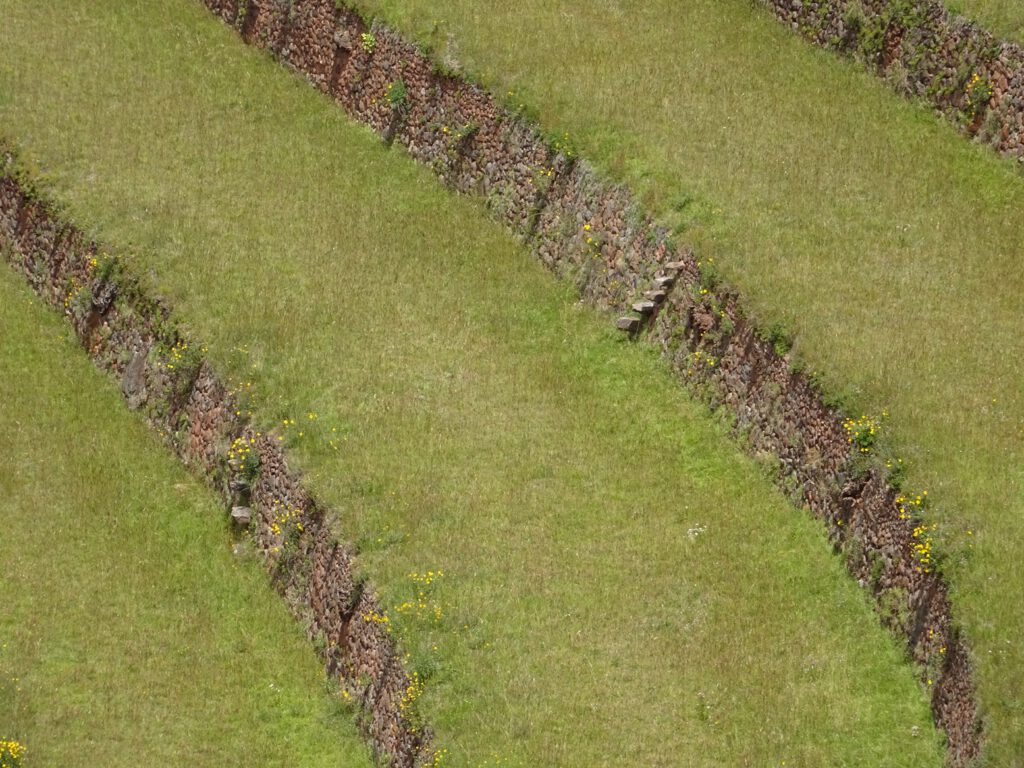
It is actually a pity they only have grass now, because given how steep everything is around here, I’m sure the local farmers would love to make use of those flat areas for planting.
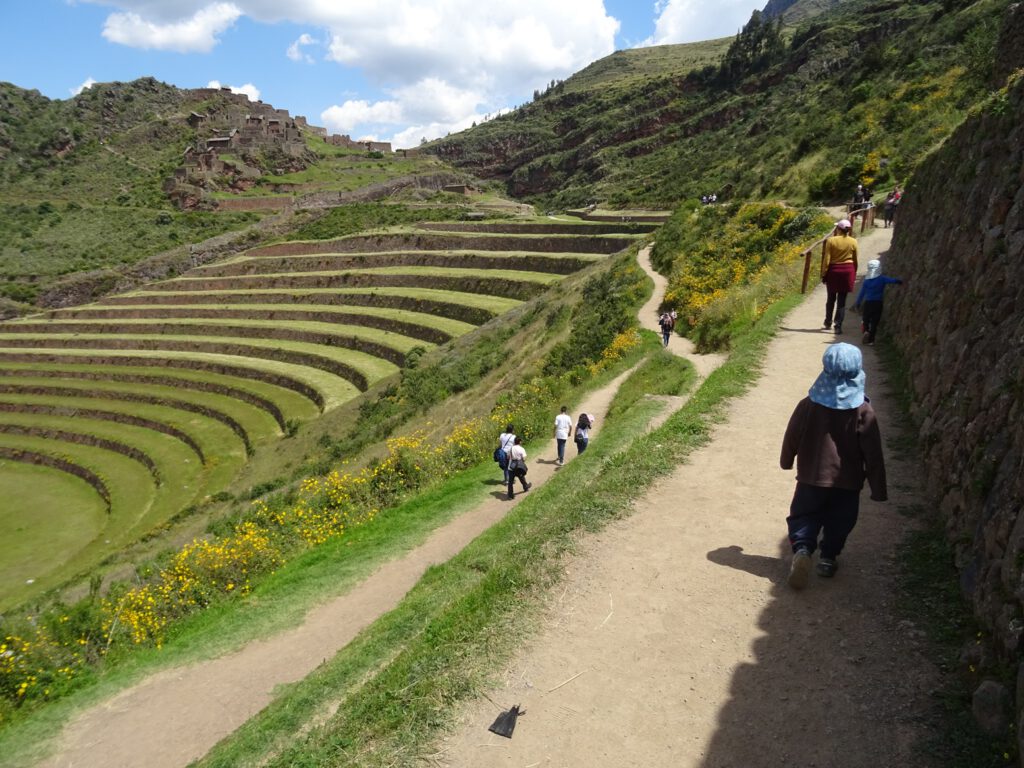
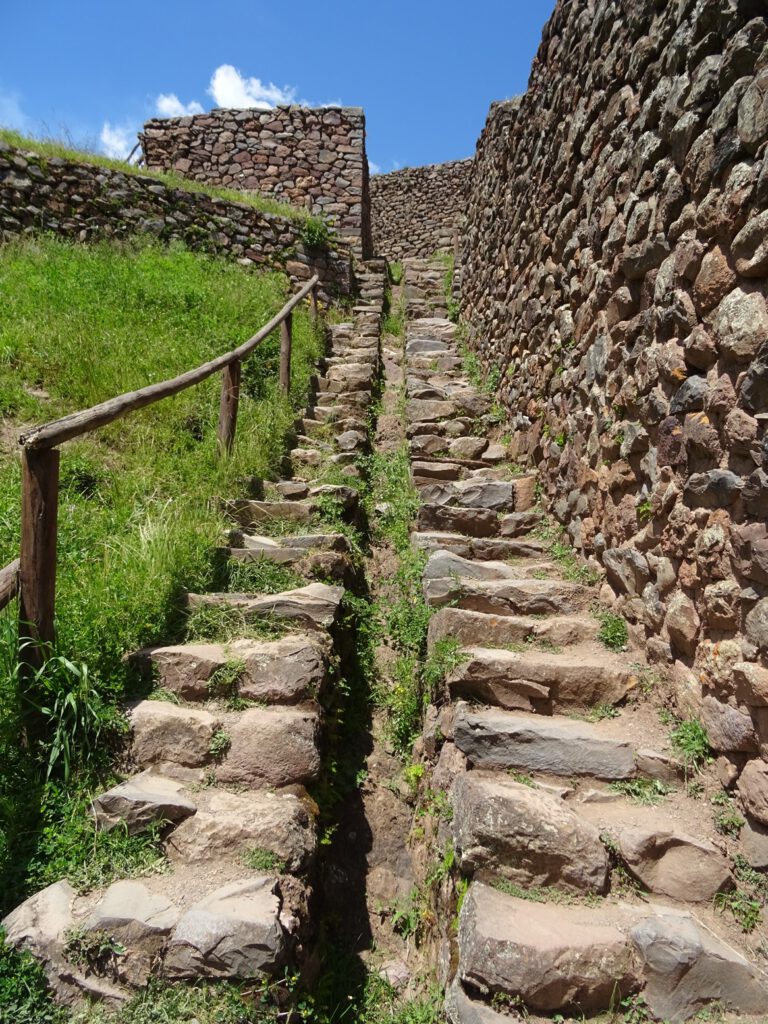
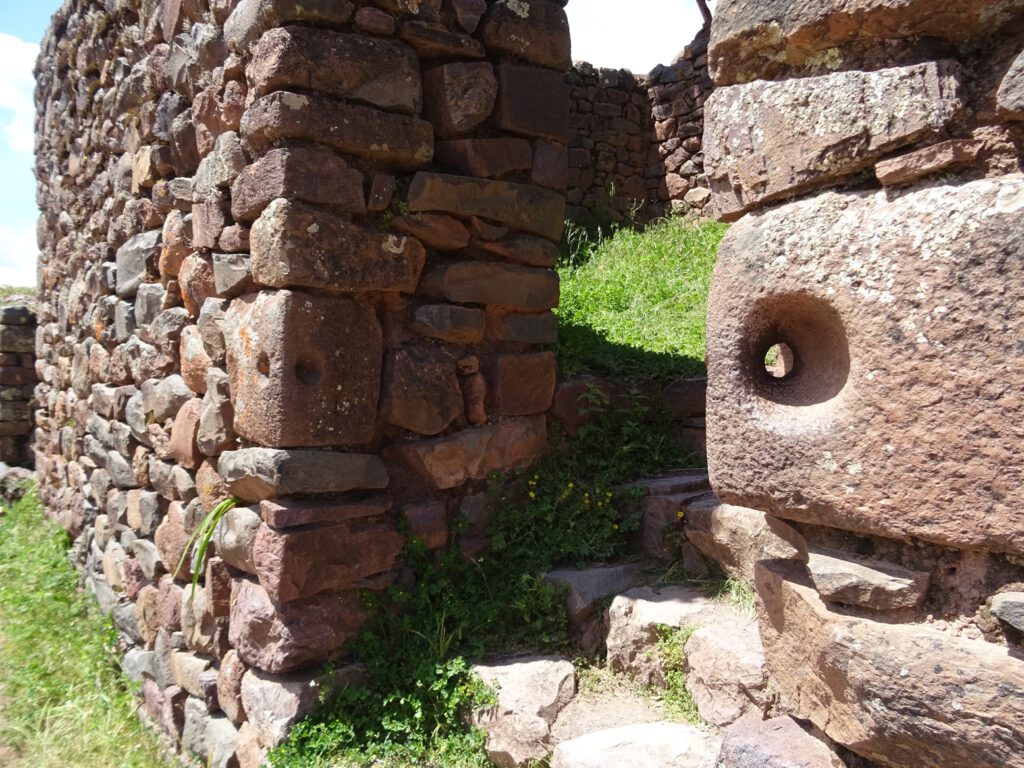
At the beginning there is what seems to be the main living area for the soldiers, and a lot of terraces going down to quite low in the valley. From here there should be a path to go down to the next highlight, the religious area, all downhill.
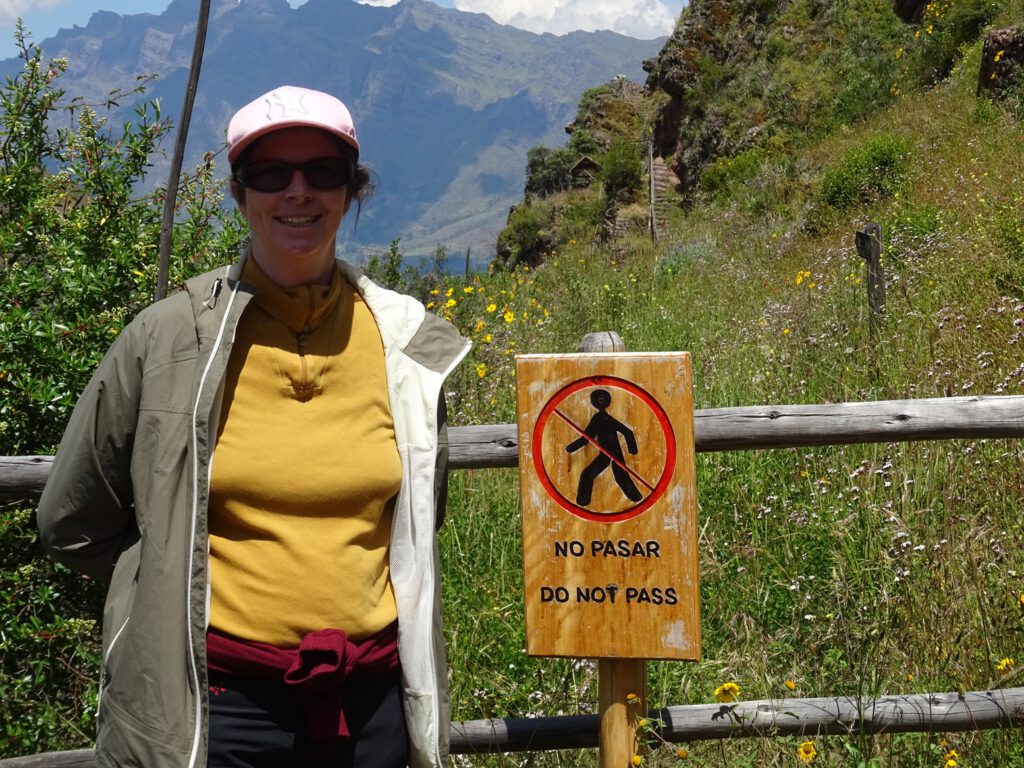
However, the path is closed due to landslides, the same as another alternative path. Our only choice is to go back, or pick the much harder and longer path that climbs all the way to the highest viewpoint, and then goes downhill on the other side. We of course take the latter option.
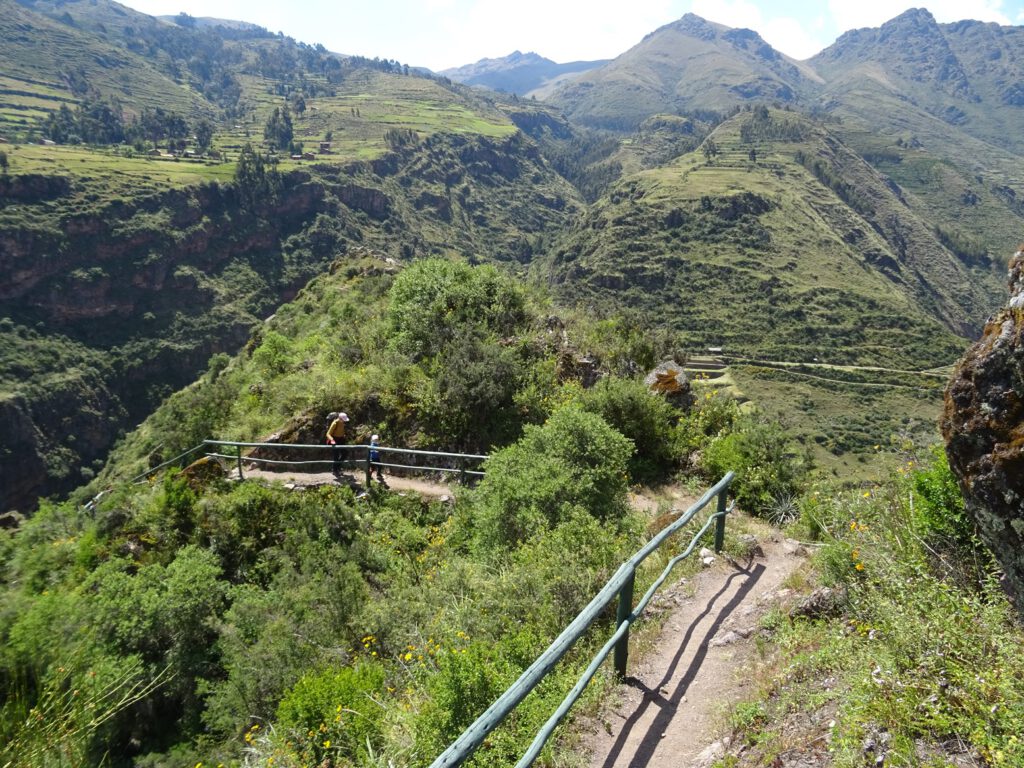
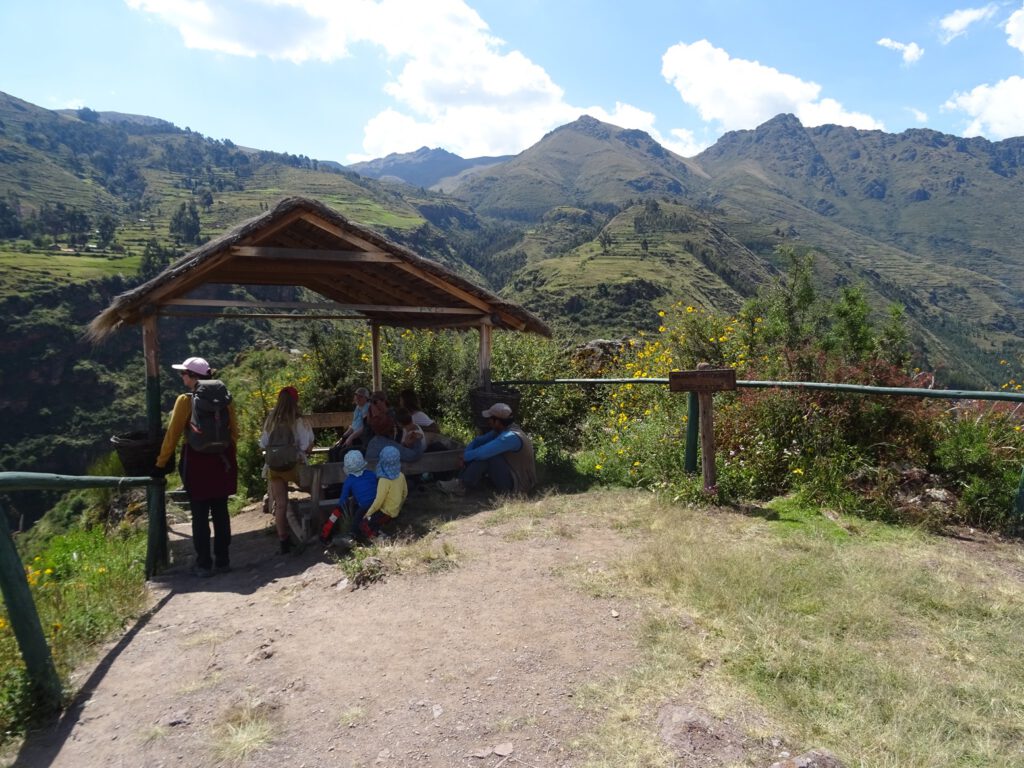
Despite being a very tough trek with plenty of steps, the kids showed their strength and held up very well. Simon did most of the way on his own, and Thomas required being carried in our shoulders several times, but still walked about 70% of the way! The path itself is not very child-friendly, with dangerous cliffs and very steep stairs, but going slowly and with loads of care we all managed to get down safely.
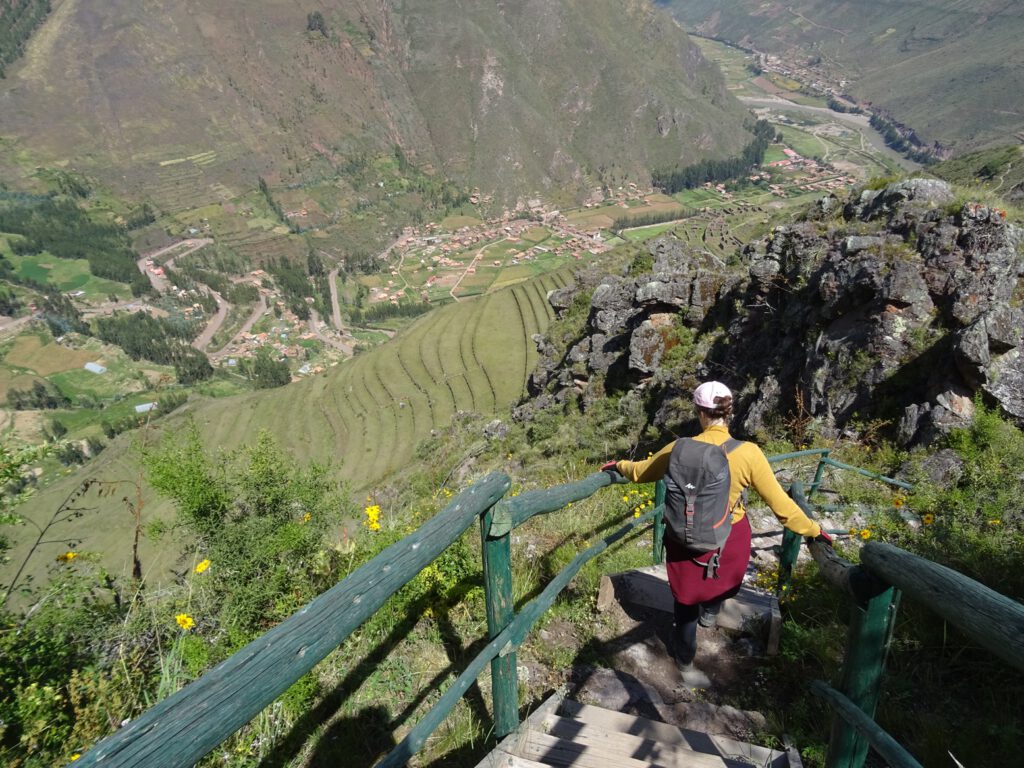
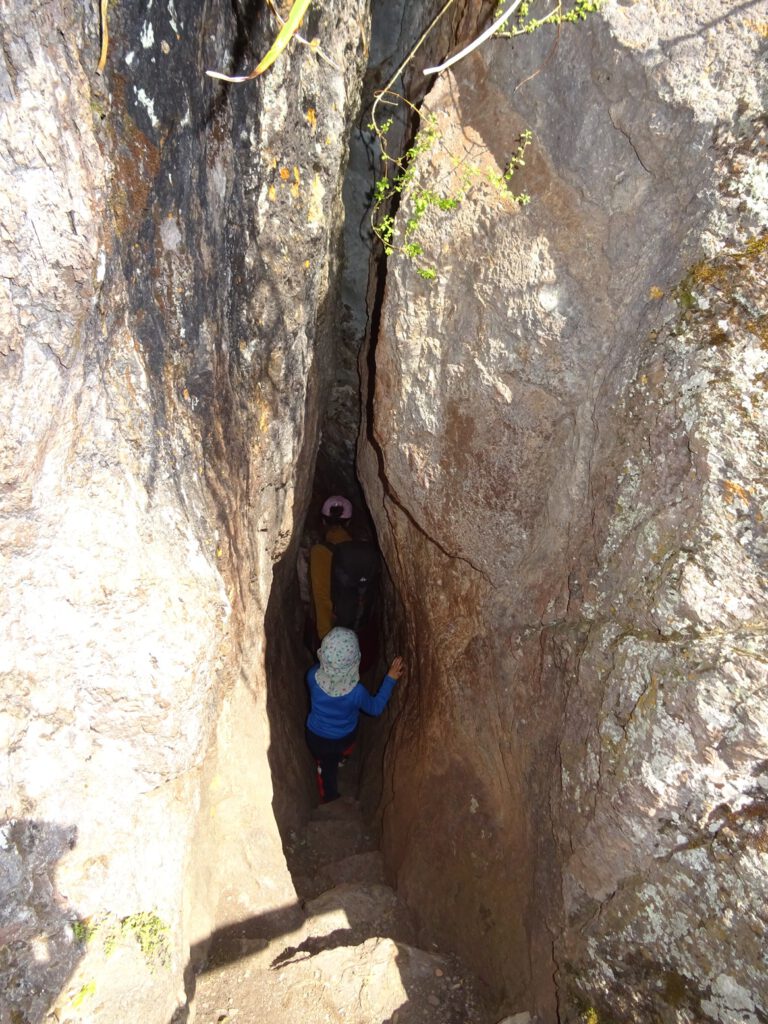
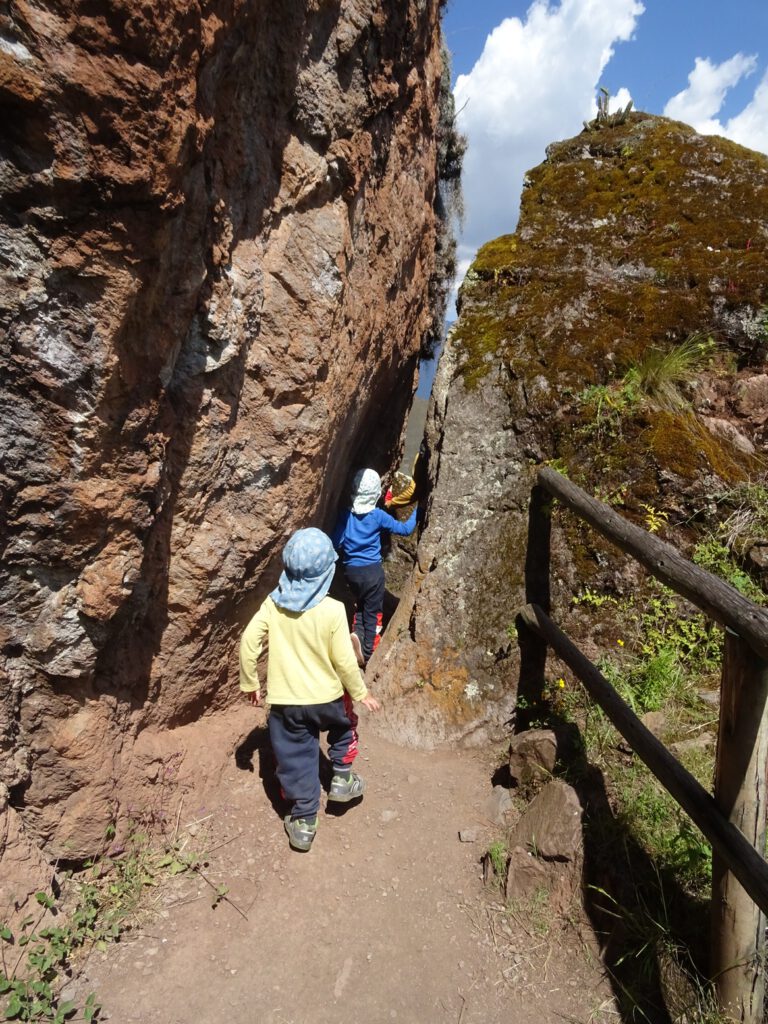
The religious area has the best carved stones, with the perfect walls the incas are known for. Further down is the proper village where farmers are thought to have lived.
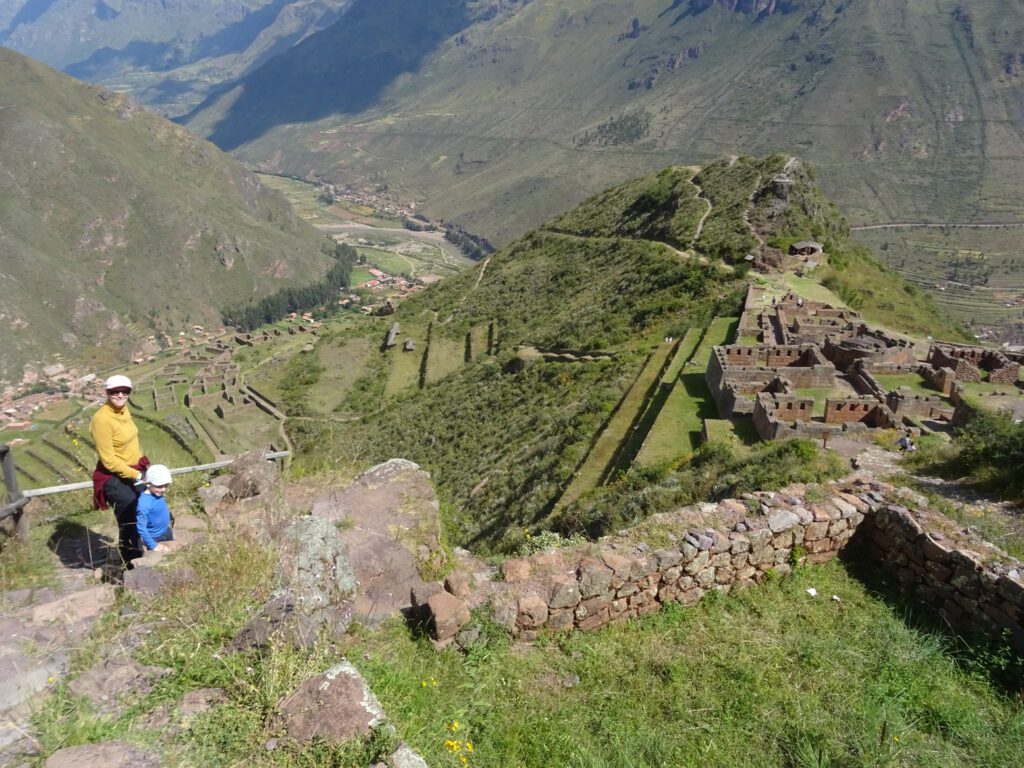
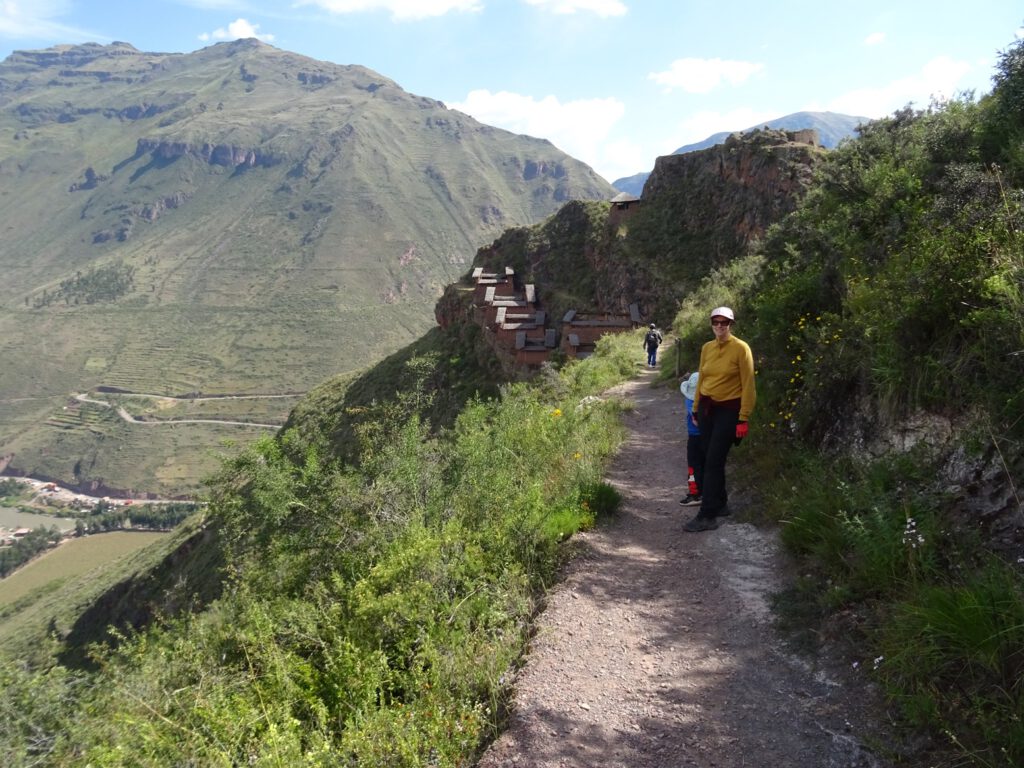
The path got easier, at least technically, from this point onwards, while we went around the hill and finally got a view of the modern Pisaq village at the bottom of the valley.
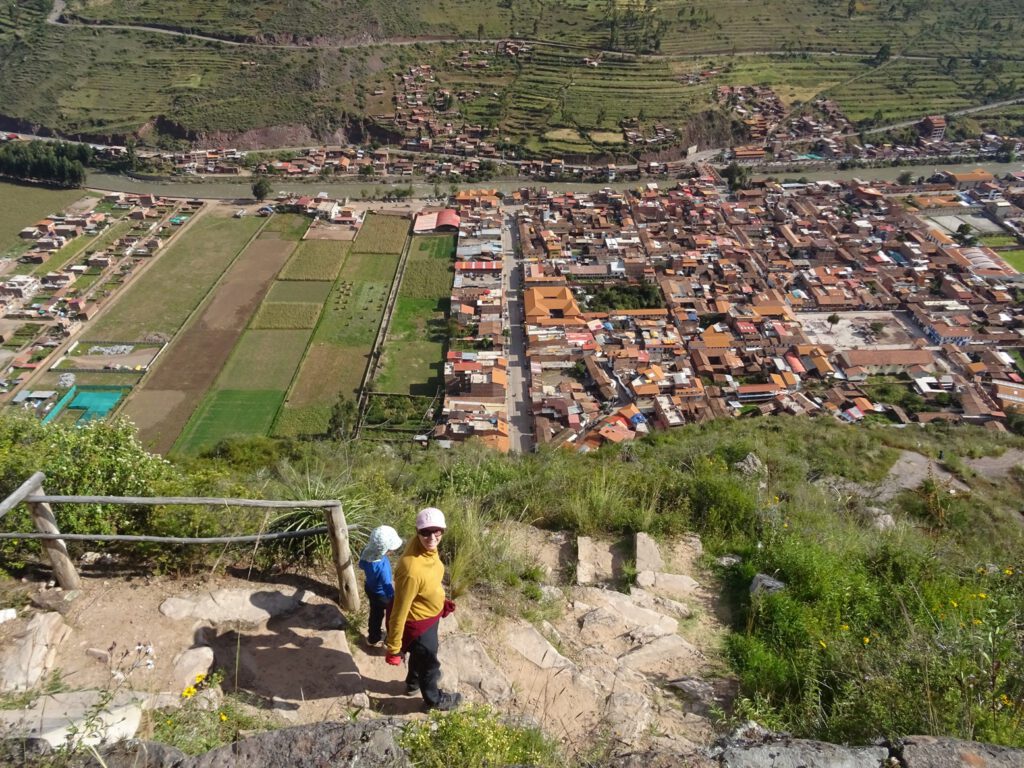
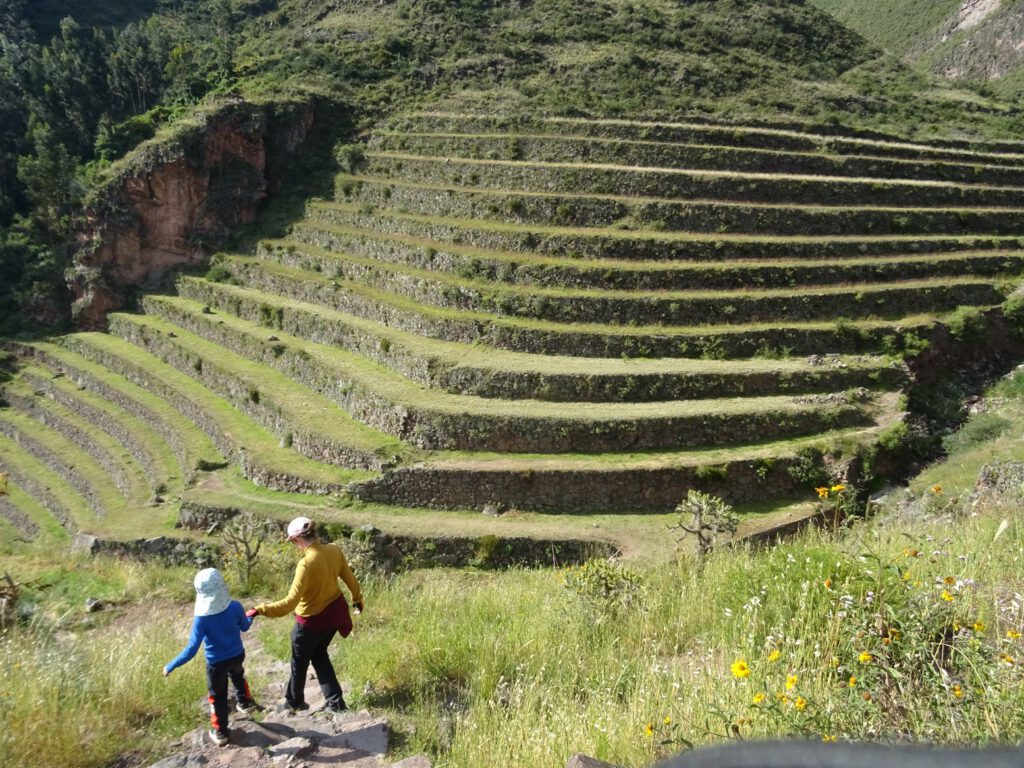
There are more terraces to walk through, and more stairs on a very narrow valley very easy to defend in case of attach.
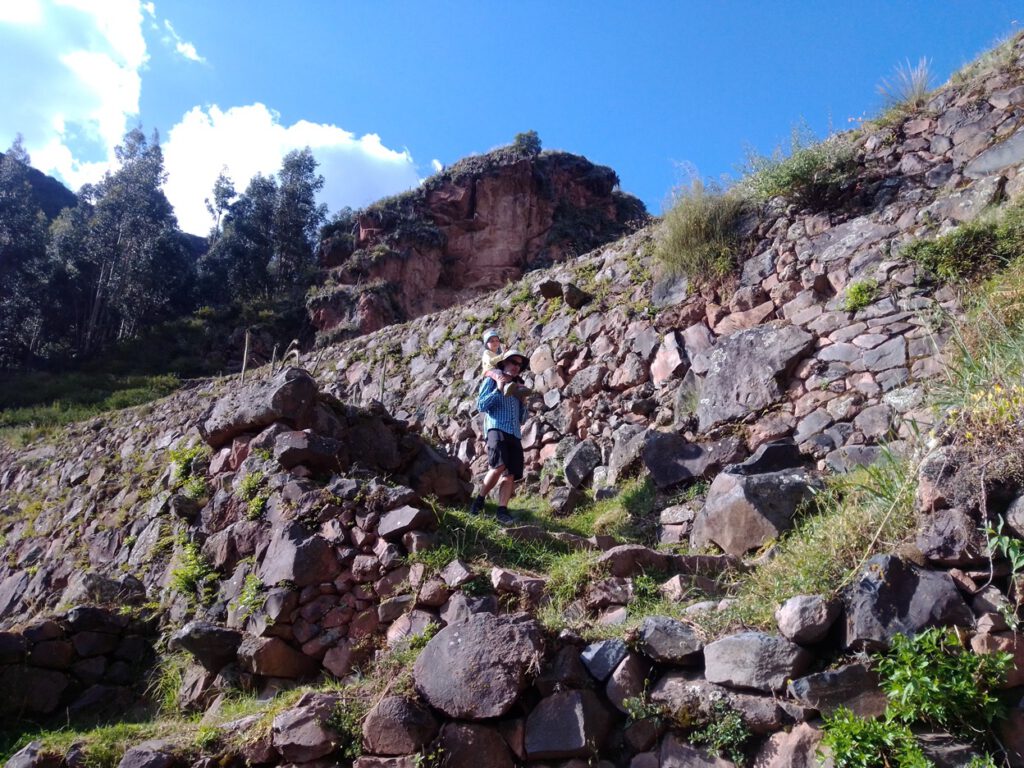
We finally reached the bottom next to where the Pisaq market is, quite famous for their wollen products, souvenirs, and other tourist goods.
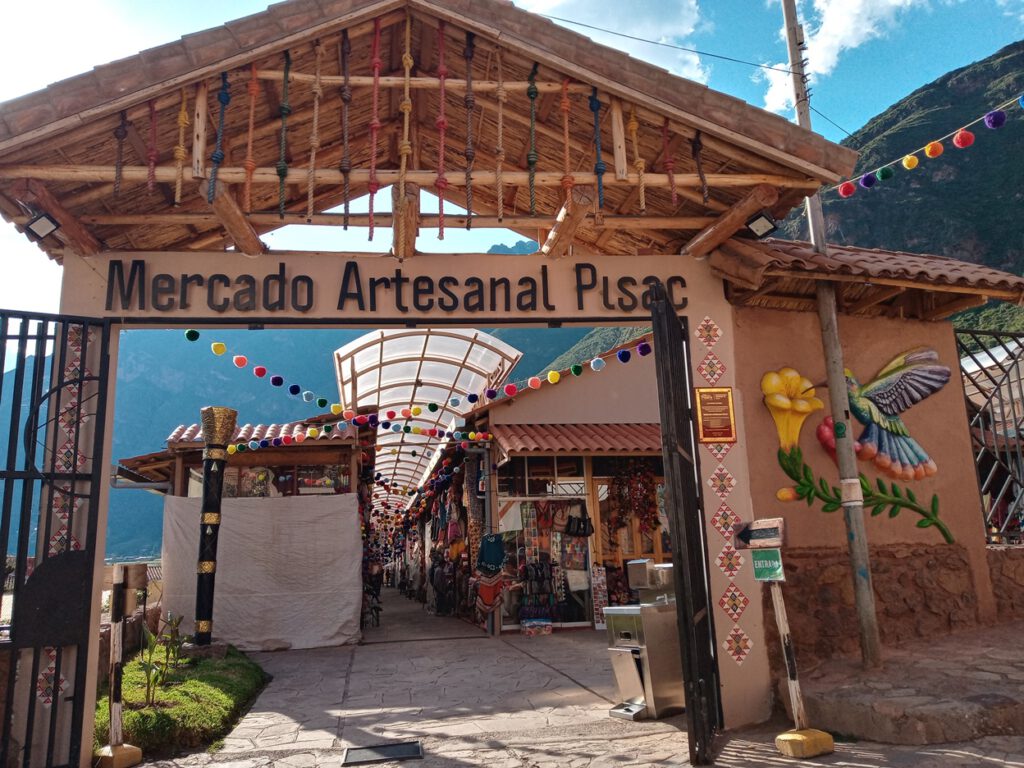
The locals were busy doing nice decorations on the floor, using coloured seeds, in preparation for Easter week. We took an ice cream as reward for the kids after the gigantic trek they had managed to do. We waited for a while for a colectivo to take us back to Cusco, but most were packed and it was getting dark. In the end we managed to board into one that was nearly full, so Susanne and Thomas had to sit on the floor, in a wooden-made bench where the aisle should be. Luckily most passengers only got down close to Cusco so they didn’t have to move much.
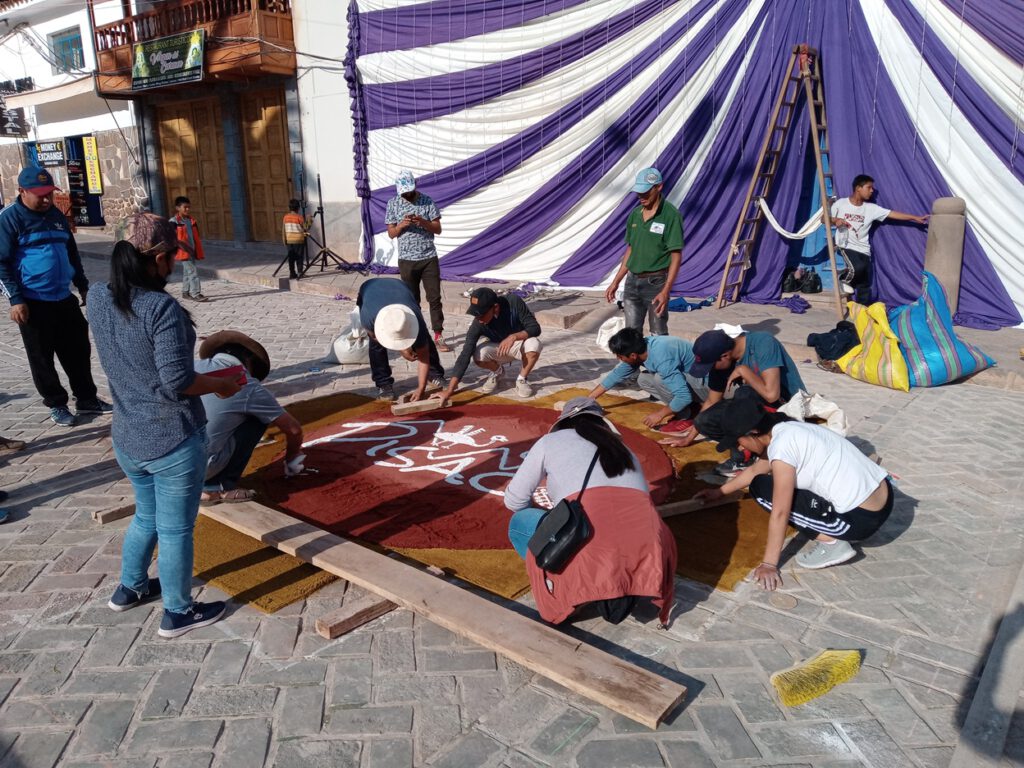
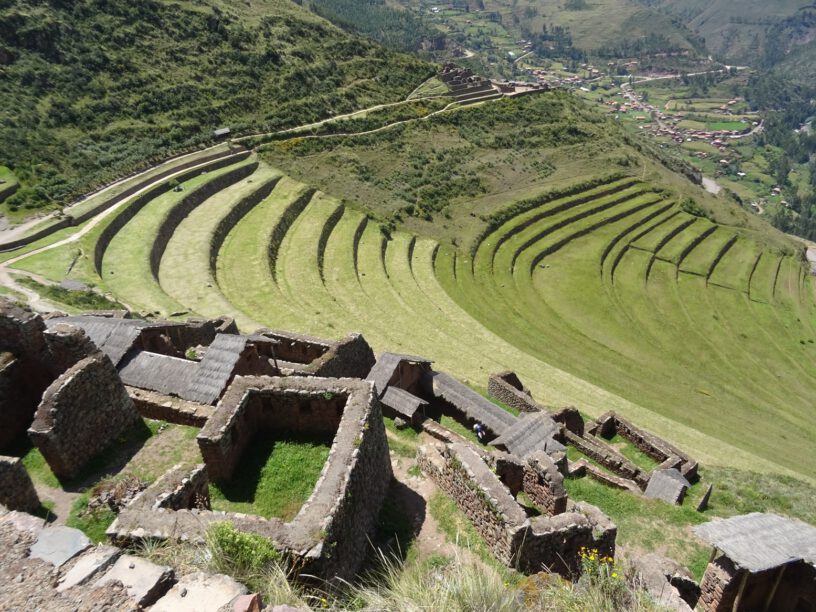
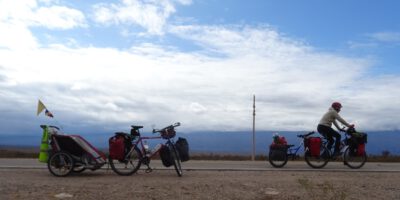
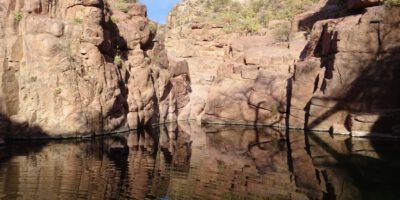
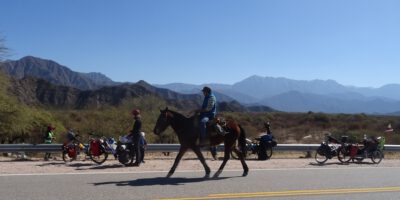
Maria
Vaya aventuras! Te digo yo que Thomas y Simon aguantan una caminata mejor que yo jajaja. Un beso enorme a los 4!